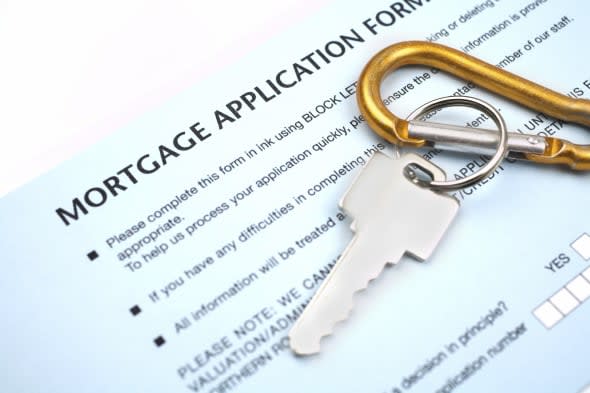Want a mortgage? How to improve your chances

Before the credit crunch, mortgages were relatively easy to come by, with interest-only deals, high loan-to-value on offer and first-time buyers welcome. But since the recession, lenders have been tightening their criteria, and now everyone applying for a mortgage must undergo a 'stress test' to ensure they can really afford a home loan.
Related Searches
If you're considering taking that first step onto the property ladder, here's what you can do to improve your chances.
Check your credit score
Every time you apply to borrow money, the lender will check your credit score, and it's no different when it comes to mortgages. This way they can search your records to see how much you may have borrowed in the past, and whether your repayment history is good. Therefore, it's worth taking a look for yourself before applying for a mortgage. Everything from mobile phone and utility payments will be there, along with past borrowing such as credit cards, loans and overdrafts from the previous six years.
If you spot any errors on your credit file, ask for them to be corrected by way of a 'notice of correction'. You may need to check with all three of the big credit agencies to see if the error exists across the board. You can also contact the lender directly and ask them to wipe the mistake from your credit files, though you will usually need proof that it is in fact an error. It's worth remembering that if you have had a joint bank account, mortgage or loan with a now ex-partner in the past, their poor scores may still be affecting yours, so if you've split up, write to the credit agencies and ask for a notice of 'disassociation'.
All three credit agencies - Equifax, Credit Expert and Callcredit - charge for sending you a credit report, but most offer a 30-day free trial, so simply sign up, then cancel before the direct debits begin to get yours for nothing.
Manage your credit
As bonkers as it may sound, if you never borrow money, you'll find it hard to get a mortgage, since the lender has no idea whether you will conscientiously make repayments as and when necessary, so there's no harm in having credit cards. What you need to be careful of, however, is how much unused credit you have available. According to Experian, lenders prefer you to use slightly less than half of your credit limits. If you have thousands of pounds-worth of credit available, they may be worried that you will suddenly be in a lot more debt if you do decide to use it. So while you don't want to max out your credit limits, don't leave yourself wide open to the possibility that you could rack up a whole lot more.
That said, beware of applying for credit near to the time when you plan to apply for a mortgage, preferably avoiding any applications for three to six months beforehand. All credit checks show up on your report, and too many in a short period implies desperation on the debt front, putting the kibosh on your mortgage application. Steer well clear of payday loans too, as many lenders won't consider you if you've had a short-term loan in the 12 months prior to your mortgage application.
Pay your bills
Whether it's a credit card or your mobile phone bill, always, always pay your bills on time. Missed payments are automatically reported to the credit agencies, while defaults will stay on your file for six years, and either could make mortgage lenders more cautious. Set up direct debits for all your regular outgoings to ensure that your accounts are up to date.
Get your finances in order
This means not only keeping your bank account in the black and cutting back on spending to ensure that you'll pass the mortgage 'stress test', but also getting your paperwork in order. As of April 2014, lenders look at much more than your credit score, taking into account all of your income and outgoings, including everything from social spending to childcare and takeaways. This is to make sure you would be able to afford a mortgage should interest rates take a steep rise, so it's wise to consider yourself how you could cope with such a situation, and cut back accordingly.
You may well be asked for three months' bank statements, payslips, P60 or tax returns, ID such as a passport plus utility bill, and details of savings or borrowing, so make sure you have all the necessary information at hand when you begin applying for mortgages.
%VIRTUAL-AFCSponserAds%
Get on a roll
If you're not on the electoral roll, you'll more than likely struggle to get a mortgage. No matter how good your credit score, mortgage lenders use electoral roll data for identity checks, and if you're not listed, you'll miss out. So don't delay - registration is completely free and only takes a moment, either online or by post, and it could mean the difference between getting mortgage approval or not.
Have you recently passed the mortgage stress test? What advice would you give to others looking to buy their own home? Leave your comments below...




